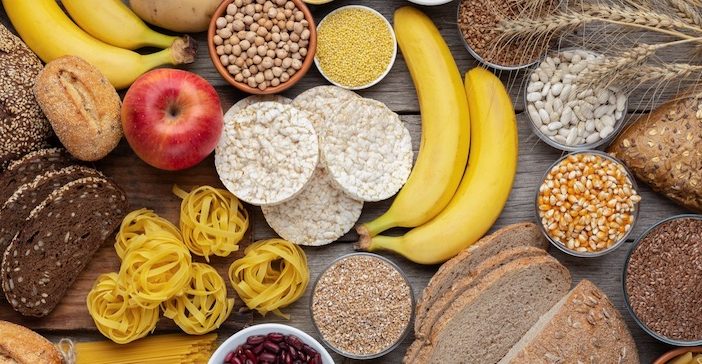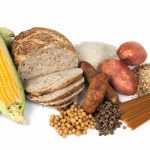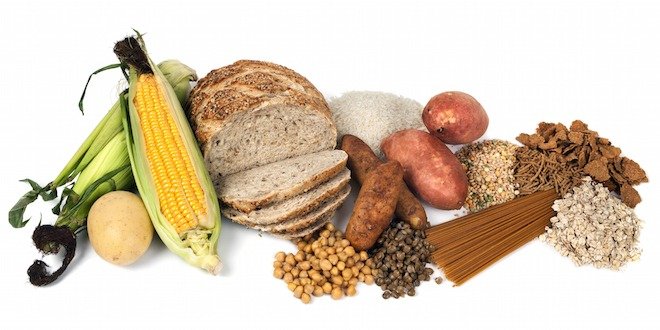
What are carbohydrates?
Carbohydrates are a type of macronutrient found in certain foods and drinks. Macronutrients are the nutrients we need in larger quantities that provide us with energy. (Other macronutrients are fat and protein.)
When you eat carbohydrates, your digestive system breaks them down into simple sugars, primarily glucose. This glucose is then absorbed into your bloodstream. Blood glucose (blood sugar) is the main source of energy for your body’s cells, tissues and organs.
Understanding the role of carbohydrates in your nutrition plan is one of the most important things you can do to help manage your condition.
Types of carbohydrates
There are 3 main types of carbohydrates:
- Sugars are simple carbohydrates. They are found naturally in fruits and some vegetables. They can also be added to foods such as candy, desserts, processed foods and pop.
- Starches are known as complex carbohydrates, because they are made of simple sugars strung together. Your body needs to break down starches into sugars to use them for energy. Starches include bread, cereal, pasta and some vegetables (for example, potatoes, peas and corn).
- Fibres are also a complex carbohydrate. Your body cannot break down most fibres, so eating fibre-rich foods can help you feel full and make you less likely to overeat. Fibre itself does not affect blood sugar levels. In addition, fibre can help slow the absorption of sugars and improve blood sugar control. Fibre is found in many plant-based foods, including fruits, vegetables, nuts, seeds, beans and whole grains.
How do carbohydrates affect blood sugar?
Carbohydrates (sugars and starches) can cause blood sugar to rise, so it’s important that you keep track of how much – and what type – of carbohydrate you are eating.
Simple carbohydrates cause blood sugar levels to rise very quickly. Conversely, complex carbohydrates will elevate blood sugar levels more slowly.
Insulin and carbohydrates
If you take insulin to manage your diabetes, it is important to know the relationship between insulin and carbohydrates. Insulin works to lower blood sugar levels after eating carbohydrates, which is why it is important to match the amount of insulin you take to the carbs you eat. The insulin dose you need depends on the amount and type of carbohydrate you are eating, and your insulin-to-carbohydrate ratio. Your healthcare team can provide guidance on how to calculate the amount of insulin you will need based on your carbohydrate intake.
Glycemic index and glycemic load
Another important consideration when thinking about carbohydrates is the glycemic index and glycemic load of foods. The glycemic index rates carbohydrates according to how quickly they raise your blood sugar. The glycemic load rates the impact of carbohydrates on blood sugar based on a number of factors, including the type of carb, how it is prepared and serving size.
Which types of carbohydrate should I eat?
Everyone needs carbohydrates to provide their body with energy. But it’s important to eat the right kinds of carbohydrates, especially for people with diabetes.
When eating grains, choose whole grains rather than refined grains. Whole grains are found in whole wheat bread, whole wheat pasta, brown rice, whole cornmeal and oatmeal.
Choose carbohydrate-containing foods that also have lots of fibre. Some good choices include legumes such as black beans, kidney beans, chickpeas, cannellini beans and lentils. Fruits and vegetables, especially those with edible skin (for example, apples, pears and kiwis) and those with edible seeds (for example, berries) are also excellent choices.
Choose foods with added sugar less often. These include packaged baked goods, candy, pop and fruit drinks.
Always check the nutrition facts table on packaged foods for their carbohydrate content. The grams of dietary fibre are already included in the total carbohydrate count, and since fibre does not affect blood sugar, it is important to subtract the fibre from the total carbohydrate, to understand the amount of carbohydrate that can impact your glucose levels.
Carbohydrate counting
Carbohydrate counting offers a flexible way for people with diabetes to plan their meals. It focuses on foods that contain carbohydrate, as these have the biggest effect on your blood sugar.
Follow these steps for effective carbohydrate counting:
- Set carbohydrate goals for each meal; your healthcare team can help you determine what this should be.
- Make healthy food choices – include a variety of vegetables, fruits, whole grains and lean protein for all meals.
- Focus on the types of carbohydrates in your meal – choose whole grains and legumes more often.
- Record the carbohydrate content of the foods you eat throughout the day. Be sure to note portion sizes as well.
- Monitor the effect of food intake on your blood sugar level and work with your healthcare team to correct blood sugar levels that are either too high or too low after eating.
Physical activity and carbohydrates
If you are planning to exercise, it’s important to check your blood sugar levels before, during and afterwards. Since some forms of exercise can cause blood sugar to go low, it’s important to carry a form of carbohydrate with you to treat it.
Carbohydrates are an essential part of a diabetes diet. However, it’s important to make healthy choices and monitor the type and amount of carbohydrate you eat.
Articles about carbohydrates and diabetes
 Hypoglycemia? Variation in amount, timing, and digestion rate of carbs may be the clue.If you live with or care for a person with diabetes, it comes as no surprise that hypoglycemia (or low blood glucose) presents a serious threat to a person's physical health.
Hypoglycemia? Variation in amount, timing, and digestion rate of carbs may be the clue.If you live with or care for a person with diabetes, it comes as no surprise that hypoglycemia (or low blood glucose) presents a serious threat to a person's physical health. Carbs and healthier carbs for people with diabetesPicture a food you love. Now imagine being told you should never eat that food again. When a person is diagnosed with diabetes, this is often the message they perceive from those around them - especially when it comes to carbohydrates.
Carbs and healthier carbs for people with diabetesPicture a food you love. Now imagine being told you should never eat that food again. When a person is diagnosed with diabetes, this is often the message they perceive from those around them - especially when it comes to carbohydrates. Carbohydrate content may differ in the same types of foodsCarbohydrates are the macronutrient that the human body requires in the largest amounts. This is because carbohydrates are the body’s main source of fuel, and are needed for organs and tissues to function properly.
Carbohydrate content may differ in the same types of foodsCarbohydrates are the macronutrient that the human body requires in the largest amounts. This is because carbohydrates are the body’s main source of fuel, and are needed for organs and tissues to function properly. Carb counting: a meal planning solution that offers flexibilityCarbohydrate counting or "carb counting," is a meal planning technique for managing blood glucose levels that is based on the premise that carbohydrate-containing foods have the greatest effect on blood glucose compared to foods that contain mainly protein or fat.
Carb counting: a meal planning solution that offers flexibilityCarbohydrate counting or "carb counting," is a meal planning technique for managing blood glucose levels that is based on the premise that carbohydrate-containing foods have the greatest effect on blood glucose compared to foods that contain mainly protein or fat. Very low carb diet and diabetesA very low carb diet may help you manage your diabetes more effectively
Very low carb diet and diabetesA very low carb diet may help you manage your diabetes more effectively Carbohydrate content of foods (includes printable chart)Carbohydrates are an important part of your nutrition plan, because they are one of the body’s main sources of energy. Carbohydrates also have the greatest effect on your blood sugar.
Carbohydrate content of foods (includes printable chart)Carbohydrates are an important part of your nutrition plan, because they are one of the body’s main sources of energy. Carbohydrates also have the greatest effect on your blood sugar. Carbohydrates are important in diabetes managementEverybody – including people with diabetes – needs to include foods that contain carbohydrate in their diet, because they are one of the body’s main sources of energy.
Carbohydrates are important in diabetes managementEverybody – including people with diabetes – needs to include foods that contain carbohydrate in their diet, because they are one of the body’s main sources of energy.





